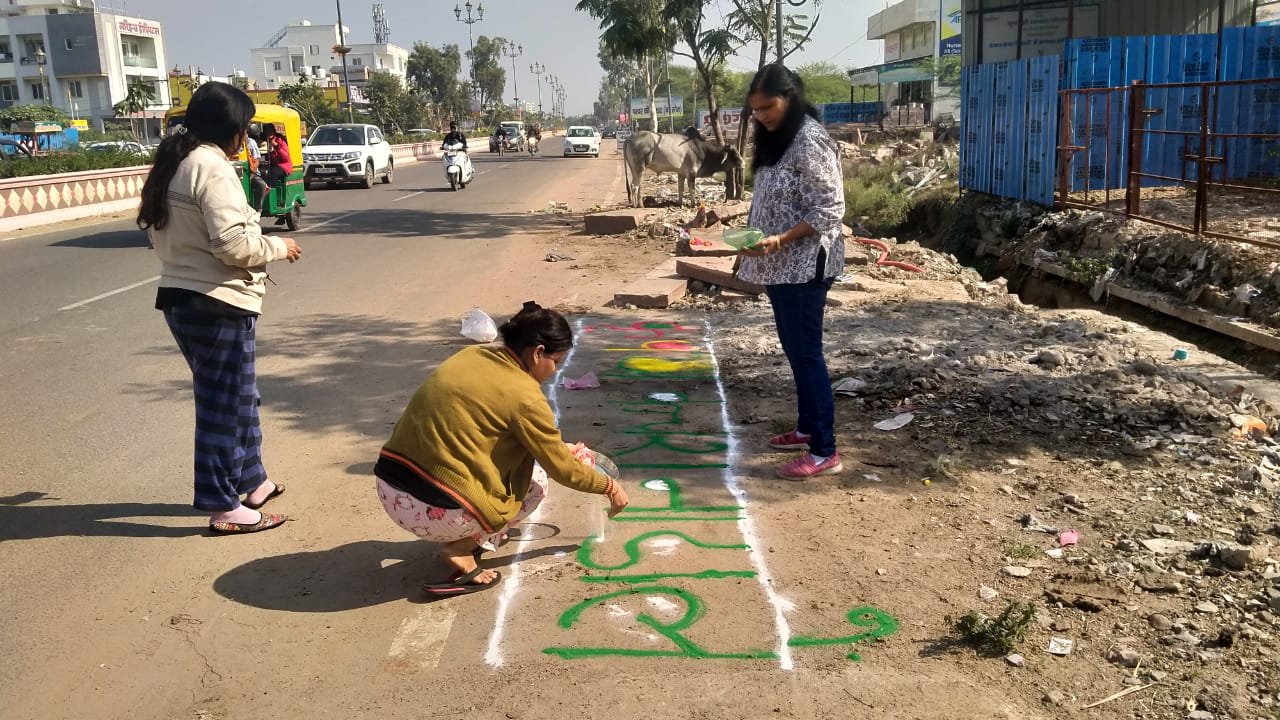
Kota’s Dawn of Positive Change
In the city of Kota, Rajasthan, a dawn of positive change has brought about a transformation in the area. The DCM Shriram Foundation, in collaboration with various housing societies, initiated the “Khushhali Swachhta Pariyojana”. Among them was the Kanchanjanga Nainani Housing Society, where residents like Jyoti Khurana, Abhilasha, and Smita were grappling with a persistent issue – improper waste disposal. These three determined women envisioned a clean and healthy society, but they were constantly troubled by heaps of garbage near their homes. Despite regular garbage collection services, neighboring shops and settlements continued to dump waste haphazardly, creating an ongoing problem. The trio aspired for cleanliness in their surroundings but often found themselves disappointed. On December 16, 2023, a crucial turning point was reached. A cleanliness drive was organized outside the society, targeting a large heap of waste known as a Garbage Vulnerable Point (GVP) Point, which was seemingly impossible to clear. With the support of their society and FINISH Society, Jyoti Khurana, Abhilasha, and Smita successfully organized the cleanup of this substantial waste heap. Empowered by this small victory, these enthusiastic women took matters into their own hands. Opting for a creative and impactful approach, they decided to convey their message through art. On the same day, these women gathered near the GVP Point and adorned the surroundings with vibrant rangoli, sending a powerful message – no more littering. This artistic effort served as a symbolic gesture, representing their commitment to maintaining cleanliness. The lively colors spoke louder than words, urging everyone to rethink their habits and contribute to a cleaner environment. The beauty of the rangoli stood in stark contrast to the filth that had previously marred the landscape. However, the women did not stop at merely expressing their disdain for littering. The society’s women’s group initiated a campaign akin to a protest in front of homes and shops. With determination, they educated people about the detrimental effects of indiscriminate waste disposal and implored them to refrain from littering. In an assertive yet constructive manner, the women’s group emphasized the importance of taking responsibility for one’s waste. Any attempt to discard garbage improperly would be met with opposition, and individuals were encouraged to approach the society members if they needed assistance with proper waste disposal methods. The story took a positive turn as the society collectively decided to explore sustainable solutions. Discussions were initiated to plant greenery and foster a sense of responsibility towards the environment. The enthusiasm for change and the united front presented by the residents showcased the transformative power of collective action. In the end, the Kanchanjanga Nainani Housing Society emerged as a shining example of how a community’s dedication could lead to a cleaner, healthier, and more environmentally conscious way of living. The women, who once faced the disheartening sight of waste near their homes, became the catalysts for positive change in their community.

